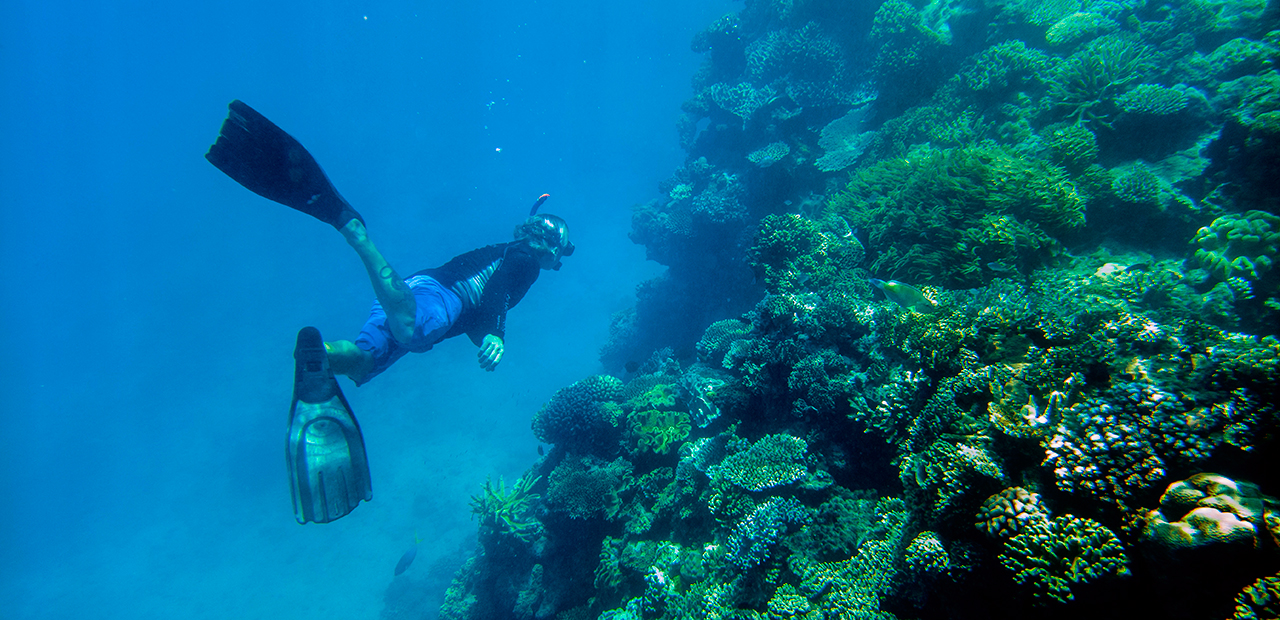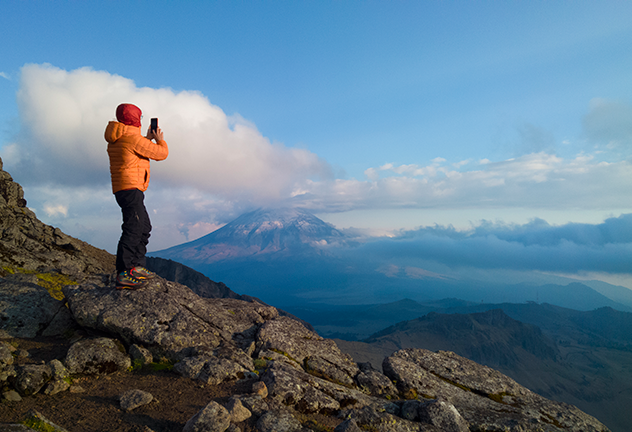Exploring the Great Barrier Reef: How to shoot underwater photos with Lumia
National Geographic photographer and Microsoft Devices Ambassador Stephen Alvarez shares some of his best tips to shoot photos underwater with a Lumia.
His latest adventure to document all Seven Wonders of the World with Lumia (check out previous stories here) took him to Australia’s Great Barrier Reef.
Instead of bringing bags of bulky camera equipment as he usually does for a photo shoot, Stephen traveled light, taking just the new Microsoft Lumia 950 to capture the colorful sea life underneath the waves.
As you may imagine, taking photos underwater requires a little set-up. Stephen encased the smartphone in a customized waterproof bag with optical plexiglass for the viewfinder and lens to protect the phone (you can create your own waterproof casing or purchase one—use Bing to search*).
Another prerequisite: If you aren’t already, learn to be comfortable underwater. Better yet, brush up on your swimming skills. You want to concentrate on taking good photos—and not worry whether you can tread water well enough to keep the camera still and catch up to a fish or other subject you want to photograph.
Here are Stephen’s tips to taking great photos underwater with your Lumia:
Shoot close to the surface. Light is most abundant within five meters of the water’s surface.
“If you go very deep at all, the spectrum changes,” Stephen said, “because the water filters out all the red.
However, he noted that the Lumia 950 works very well in low light, and was able to capture clear photos in lower depths. “Water absorbs a lot of light and down in the reefs it gets really dark,” he said in his assignment journal. “If the Lumia didn’t work so well in relative darkness I’d have no images.”
Go fully automatic on the camera controls. Allow your Lumia to make the technical decisions.
“Trust your camera,” Stephen said, adding that there’s too much going on underwater for you to manually and correctly gauge what the lens settings should be.
He added in his assignment journal: “[T]his camera makes decisions about everything from exposure to white balance the same way I would. While it’s getting the technical issues exactly right, I can concentrate on what to shoot and how to compose … This Lumia is trying very hard to put me out of a job!”
Shoot in DNG mode. Taking photos in the digital negative (RAW) mode takes more space on your phone than taking photos as JPEG files but gives you more control over your images in post-production. Water absorbs light in a unique way, making colors disappear, so being able to correct them afterwards to match what your eyes see is helpful.
Show some scale. It may be difficult to tell how large an object is underwater, so you may want to add a subject to show scale. So if you’re photographing a portion of a coral reef, add a SCUBA diver or another swimmer to the scene.
Turn the volume on the controls all the way up. Sound gets muted and distorted underwater, so ramp up the audio on your phone so you can actually hear the camera firing, Stephen suggested.
Get as close to the subject as you can. Even clear water can obscure a subject, so get up close and personal to get the most detailed pictures. The wide-angle lens on the Lumia 950 lets you get very close and still see the surroundings.
Shoot a lot of photos. The more images you shoot, the more successful you’ll be as a photographer, Stephen said, adding that he used the Burst mode on the Lumia 950 to capture a sea turtle as it swam in front of him.
Consequently, you may want to use an SD card with lots of storage so you don’t run out of space on your Lumia. Stephen typically shoots 10,000 photos for a National Geographic assignment. On a 10-day photo shoot, that’s 1,000 photos a day!
Have you found these tips helpful? Let us know on Twitter via @Lumia.
* Microsoft does not provide any warranty for any use of the Product with any product or accessory not manufactured or supplied by Microsoft. See http://www.microsoft.com/en-us/mobile/support/manufacturers-limited-warranty/
-
 December 8, 2015
December 8, 2015Exploring the Great Barrier Reef with National Geographic and the Lumia 950 and Lumia 950 XL
Lumia -
 December 15, 2015
December 15, 2015Everything you need to know about Living Images, Rich Capture, and more on your Lumia
How-To -
 July 15, 2015
July 15, 2015Video: Traveling light with Stephen Alvarez and Lumia
Lumia -
 October 15, 2015
October 15, 2015Camera magic on Microsoft Lumia 950 and Lumia 950 XL
Lumia






